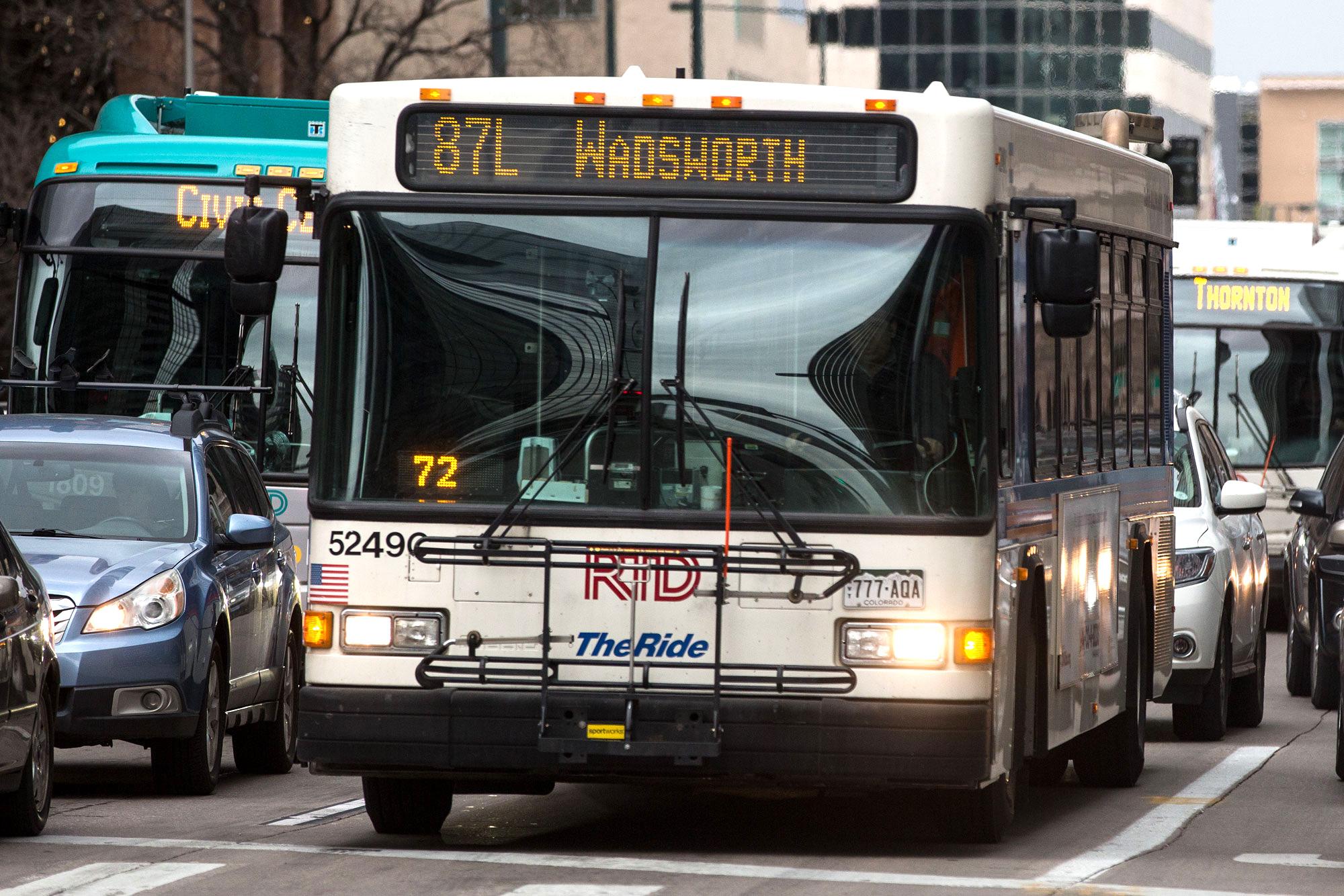

Update 5/8: The Regional Transportation District discussed the matter Tuesday night, and a spokesperson said the agency won't pursue adding Wi-Fi to its vehicles anytime soon. Our original report continues below:
—
The Regional Transportation District board of directors will discuss on Tuesday whether to add public Wi-Fi to its buses and trains.
While RTD staff say Wi-Fi could be useful for passengers, they acknowledge there are substantial cost and technological barriers — as well as questions about rider privacy. That’s according to a presentation prepared by RTD that outlines pros and cons of the idea, including the technical difficulties of maintaining speedy connections in a moving vehicle.
Staff also note that less than 20 percent of transit buses nationwide have Wi-Fi, and most transit riders would rather have more frequent service or cheaper fares over Wi-Fi.
Wi-Fi service could allow the agency to gather more information on passengers and their behavior. That data could inform agency decisions and be sold to provide a revenue stream for the transit agency. The presentation notes that any plan to sell customer data would need to go through a legal review to determine what data is legal to own and sell.
“RTD would certainly want to explore whether there’s some way to earn revenue from providing certain data without infringing on the public’s expectations of privacy,” RTD spokeswoman Laurie Huff said in a statement.
RTD would need to add routers to vehicles at a cost of $3.3 million and purchase unlimited data plans for all buses and trains at a rate of $564,000 a year. Amtrak, which has attempted to install Wi-Fi on trains and buses, has struggled to provide consistent, fast internet service.
Huff cautioned that the presentation is just an informational update in response to a board request.
“We have no plans at this time to offer Wi-Fi on our vehicles,” she said.








